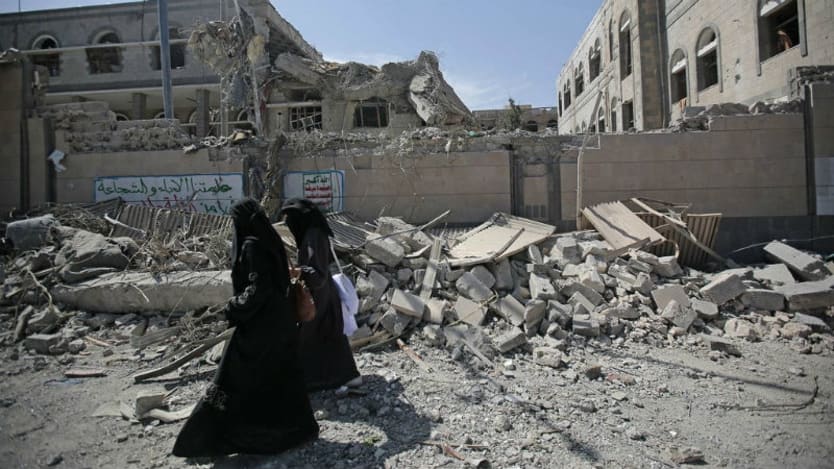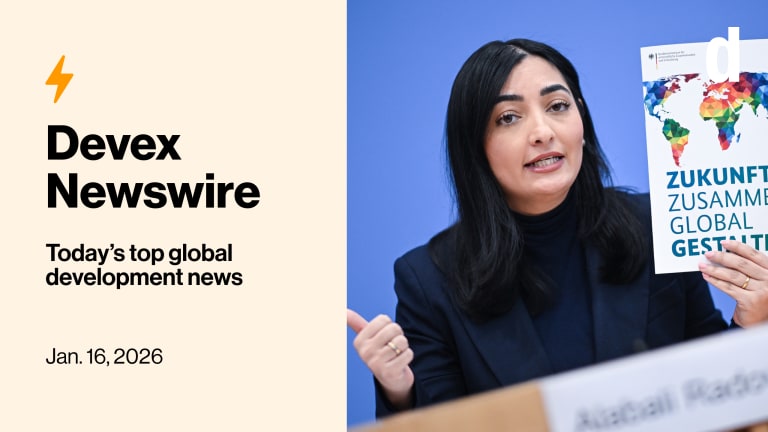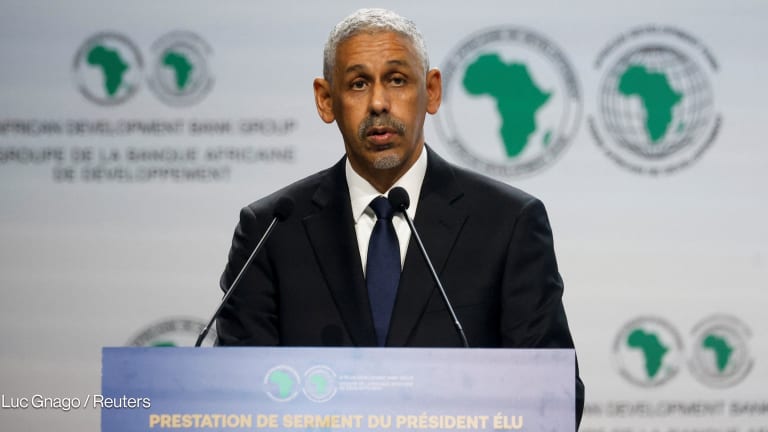
Aid groups cite critical security threats in Yemen, the Islamic Development Bank unveils a new strategy — and a new brand — and British Parliament members warn of damage to the U.K. aid “brand.” This week in development:
Two major humanitarian groups operating in Yemen are raising alarms about a deteriorating security environment that threatens their ability to provide lifesaving services. On Thursday, the International Committee for the Red Cross announced that it has pulled 71 staff out of Yemen after seeing its activities “blocked, threatened and directly targeted in recent weeks,” according to ICRC’s Director of Operations Dominik Stillhart. The aid group also described, “a vigorous attempt to instrumentalize our organization as a pawn in the conflict.” In April, an ICRC employee in Yemen was shot and killed. “The security of our staff, who are being intimidated by parties to the conflict, is a non-negotiable prerequisite for our presence and work in Yemen and an absolute priority,” Stillhart wrote in a statement. Also on Thursday, the Norwegian Refugee Council demanded an investigation into Saudi coalition airstrikes that landed within 100 meters of the NRC’s guesthouse in Sana’a. “Yet another airstrike on civilians in Sanaa, Yemen. This time close to our deconflicted NRC Guesthouse that was damaged with our staff inside. We demand investigation. US, UK & France must act to end these raids,” NRC Secretary General Jan Egeland wrote on Twitter.
The Islamic Development Bank has launched a new strategy — accompanied by the multilateral institution’s first rebranding effort in its 44-year history. The Saudi Arabia-based bank — with operating assets of $16 billion — is looking to decentralize its footprint and play a larger role in developing investment opportunities, instead of just partially funding them. “We are transforming the bank from a development bank into a bank of developers,” the bank’s new president, Bandar Hajjar, told Reuters. The institution, of which Saudi Arabia holds a 25 percent ownership stake, is also looking to decentralize its footprint beyond Jeddah. In an effort to get closer to its other member countries, the bank will begin to transfer many of its 1,200 staff to other locations, until more than half of them live outside Saudi Arabia, Hajjar said, adding that the bank might also add Nigeria to its current list of seven regional hubs. In a release, the bank described the effort — which also includes the launch of a new website — as a “modernising programme,” aimed at making the IsDB “more globally facing,” with a bigger focus on partnerships, technology and innovation, and global engagement.”
European Development Days won praise from civil society groups this year for emphasizing “women and girls at the forefront of sustainable development” during Europe’s largest annual development conference. Against the backdrop of sexual abuse and exploitation scandals that have rocked some of Europe’s largest development organizations and donors — as well as broader attention to gender inequality and abuse raised by the #MeToo movement — this year’s summit saw institutions and leaders grapple with issues related to power inequality and discrimination. As the European Union has decided to resume awarding grants to Oxfam following the organization’s sexual misconduct scandal, Devex spoke to Executive Director Winnie Byanyima about the soul searching these revelations have prompted among aid and development groups. "If we're a human rights organization, how did this happen amongst us? Why weren't we outraged when it happened and take action right away?" she asked. Discussions at EDD also focused on the next European budget cycle — covering 2021-2027 — which is currently under negotiation.
The G-7 development ministers summit in Whistler, Canada, included an historic session: Development leaders from the world’s biggest economies sat and listened while young women activists from developing countries explained what kind of assistance and investments they actually need. “They shared their experience. They challenged the ministers. They talked about the importance of education — not looking at education only as being in class, but really everything around it: What does it take for a girl to get to school? And to stay in school? And, to have the opportunity to choose the career she wants and to be empowered,” Canadian Development Minister Marie-Claude Bibeau, who set the week’s agenda, told Devex. Notably absent from the declaration released at the conclusion of the three-day development ministerial was any mention of reproductive rights, an omission that attendees and delegates told Devex was the result of U.S. efforts to soften the language.
A U.K. parliamentary committee has raised concerns about official development assistance spent outside the Department for International Development, arguing that it is often less transparent, less efficient, and less poverty-focused than foreign aid spent by DFID. As more ODA is spent by other government agencies, the International Development Committee’s new report warns that without better coordination and higher standards, it could do damage to the U.K. aid “brand.” “While spreading the administration of ODA across Whitehall creates the potential to establish new and innovative partnerships in aid delivery, it also risks undermining the quality of the U.K.’s ODA,” said Stephen Twigg, IDC chair and member of parliament.








